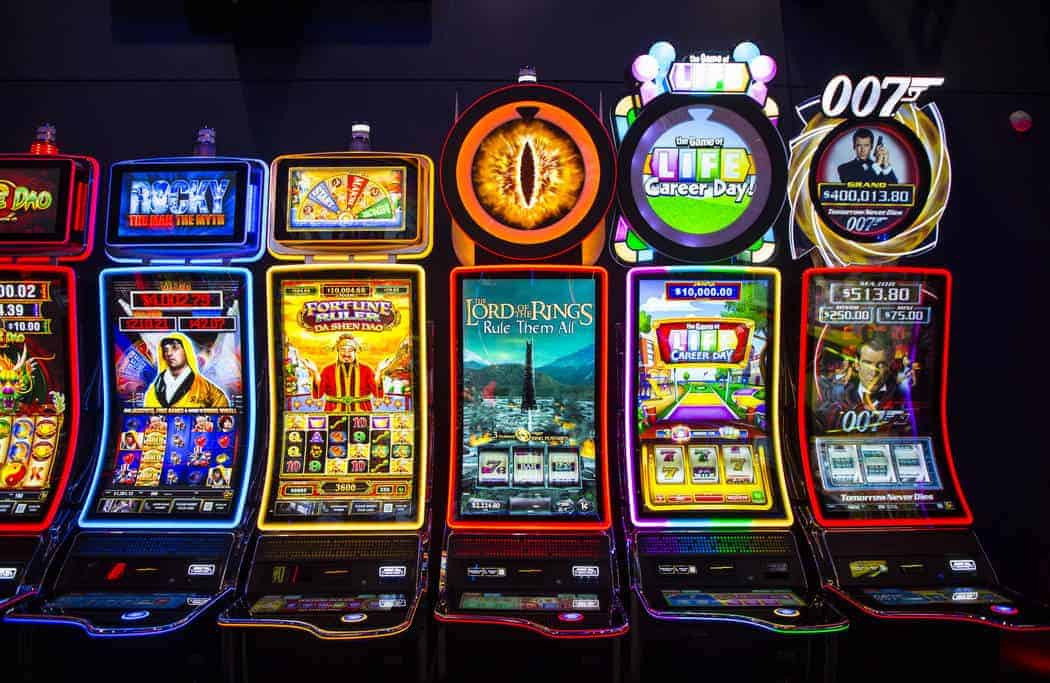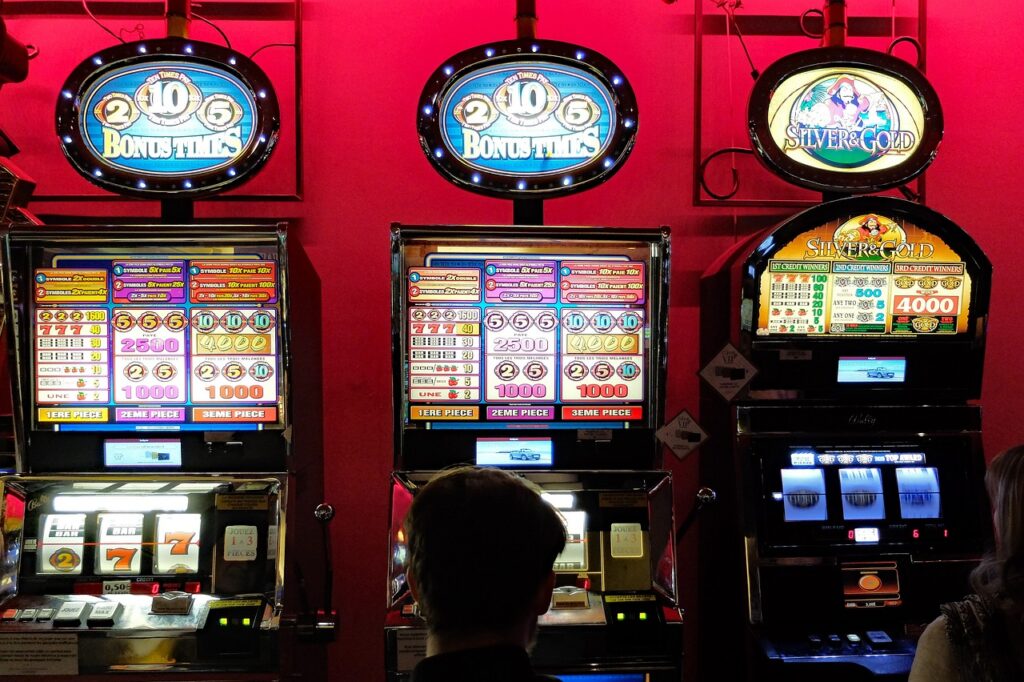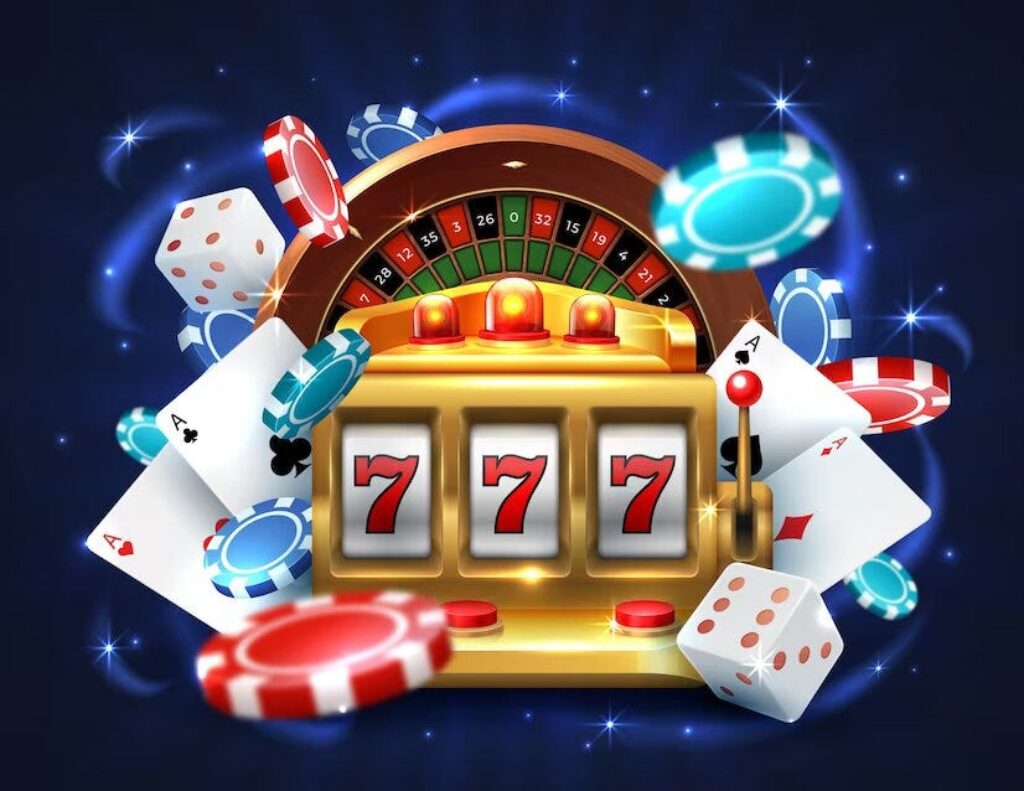
Slot machines, the vibrant and lively components of the gambling world, always intrigue with their flashing lights and captivating sounads. This blog post delves into the heart of these machines, revealing insights from the very programmers who bring them to life. Their unique perspective sheds light on the enigmatic winning patterns of slot machines, offering a rare glimpse into the world of gaming technology.
Table of Contents
How Slot Machines Work

Source: professorslots.com
Slot machines combine chance and skill, powered by mechanics and sophisticated algorithms. The Random Number Generator (RNG) is pivotal, continuously generating numbers to ensure unpredictable outcomes. Unlike older mechanical models, modern slots, like the popular Sweet Bonanza Canada, rely on RNGs for genuine randomness. This shift to digital RNGs means each spin is independent and unaffected by past results, rendering the pursuit of patterns pointless. Additionally, these machines often feature complex themes and narratives, further enhancing the gaming experience. This technological evolution has transformed slot machines into more than just a game of chance.
The Role of Programming in Slot Machines
Programming in slot machines transcends basic coding, becoming an art. Programmers craft enthralling, secure digital experiences from simple gambling concepts. They meticulously create game logic, manage flow, and integrate captivating graphics and sounds. This includes designing engaging themes and bonus features to enhance player engagement. Programmers also prioritize user interface design, ensuring games are intuitive and enjoyable. Their work influences every aspect of gaming, from the initial interface design to the sophisticated bonus rounds. This comprehensive approach to programming shapes the entire player experience, making each game a unique journey.
Programming for Fairness
Fairness is foundational in slot machine programming. Programmers develop complex algorithms to ensure outcomes are random and unbiased. Regulatory bodies rigorously test these systems, simulating millions of spins for randomness and fairness. These standards are continually evolving, requiring programmers to adapt and refine their algorithms. This ongoing commitment to fairness extends beyond legal compliance, fostering player trust. It’s not just about meeting regulations; it’s about ensuring a fair and enjoyable experience for every player. This dedication to integrity is what sets reputable gaming experiences apart, maintaining a healthy and trusted gaming environment.
Slot Machine Algorithms

Source: media.licdn.com
Slot machine algorithms are a fusion of science and creativity. They meticulously balance entertainment value with mathematical randomness, ensuring each spin is unpredictable yet enjoyable. These algorithms are designed to be tamper-proof, preventing any potential manipulation. They also manage the game’s volatility – the frequency and size of payouts, adding another layer of excitement for players. Programmers must consider player engagement and satisfaction while adhering to the legal payout ratios, a challenging yet rewarding task.
Payout Percentages
Payout percentages, the heart of slot machine economics, are carefully calibrated by programmers. These percentages represent the long-term return to players and vary between machines. Choosing the right percentage is a strategic decision, influenced by market competition, player preferences, and regulatory limits. It’s a balancing act between attracting players with high payouts and ensuring the casino’s profitability. The transparency of these percentages also fosters player trust, contributing to the game’s popularity.
Patterns vs. Randomness
The myth of patterns in slot machines is pervasive among players, but programmers emphasize the dominance of randomness. Each spin’s outcome is independent, governed by the RNG, which nullifies any notion of ‘hot’ or ‘cold’ streaks. This misconception often leads to misguided betting strategies. Understanding the role of randomness is crucial for players, as it underpins the nature of gambling: unpredictable and without discernible patterns. This knowledge encourages a more responsible approach to gaming, focusing on enjoyment rather than pattern chasing.
Programming Challenges

Source: cdn.pixabay.com
The challenges in slot machine programming are diverse and demanding. Programmers must ensure robust security to protect against hacking and fraud. This involves crafting sophisticated algorithms and encryption methods to safeguard game integrity. Additionally, they face the challenge of balancing innovation with traditional gameplay, ensuring new features enhance rather than complicate the experience. Staying ahead of technological advancements and player expectations requires constant learning and adaptation, making slot machine programming a dynamic and ever-evolving field.
The Psychology Behind Slot Machines
In programming slot machines, psychological factors play a pivotal role. Programmers use a blend of colors, sounds, and interactive elements to stimulate and retain player interest. These elements are strategically designed to trigger emotional responses, from excitement to satisfaction. The ‘near miss’ phenomenon is a classic example, where players feel they almost won, encouraging continued play. Understanding player psychology not only enhances the gaming experience but also ensures that players return, a key to the machine’s success.
Responsible Gaming Features
Incorporating responsible gaming features is a priority for programmers. They design slot machines to include options like self-set spending limits, session time reminders, and easy access to gambling help resources. These features aim to empower players, promoting a controlled and mindful approach to gaming. The industry’s commitment to responsible gaming reflects a broader shift towards ethical practices, prioritizing player welfare over profit. This approach fosters a healthier gaming environment, crucial for the industry’s long-term sustainability.
Future Trends in Slot Machine Programming

Source: miro.medium.com
The future of slot machine programming is rich with possibilities. Programmers are exploring the integration of AR and VR, offering immersive gaming experiences that blur the lines between reality and digital play. AI and machine learning promise more tailored gaming experiences, adapting to individual player preferences and behaviors. These technologies could revolutionize game design, offering personalized gaming journeys and more interactive elements. As the industry evolves, programmers will continue to be at the forefront, shaping the future of slot gaming.
Conclusion: The Programmers’ Perspective
From this in-depth exploration, it’s evident that slot machines are not merely games of chance, but sophisticated systems crafted by expert programming. The insights gleaned from programmers shed light on the intricate interplay of randomness, fairness, and psychological elements that define these machines. Understanding the role of RNGs in ensuring unpredictable outcomes, the stringent regulatory standards that uphold fairness, and the psychological strategies employed to engage players reveals the complexity behind what might seem like simple entertainment.
As players, grasping these nuances equips us with a more informed perspective. We come to appreciate slot machines not just as means of gambling, but as feats of engineering and design. This understanding transforms the gaming experience from a mere pursuit of winnings to an appreciation of the technology and creativity at play. It encourages a more responsible approach to gambling, where enjoyment and experience take precedence over the misconceptions of ‘beating the system.’







